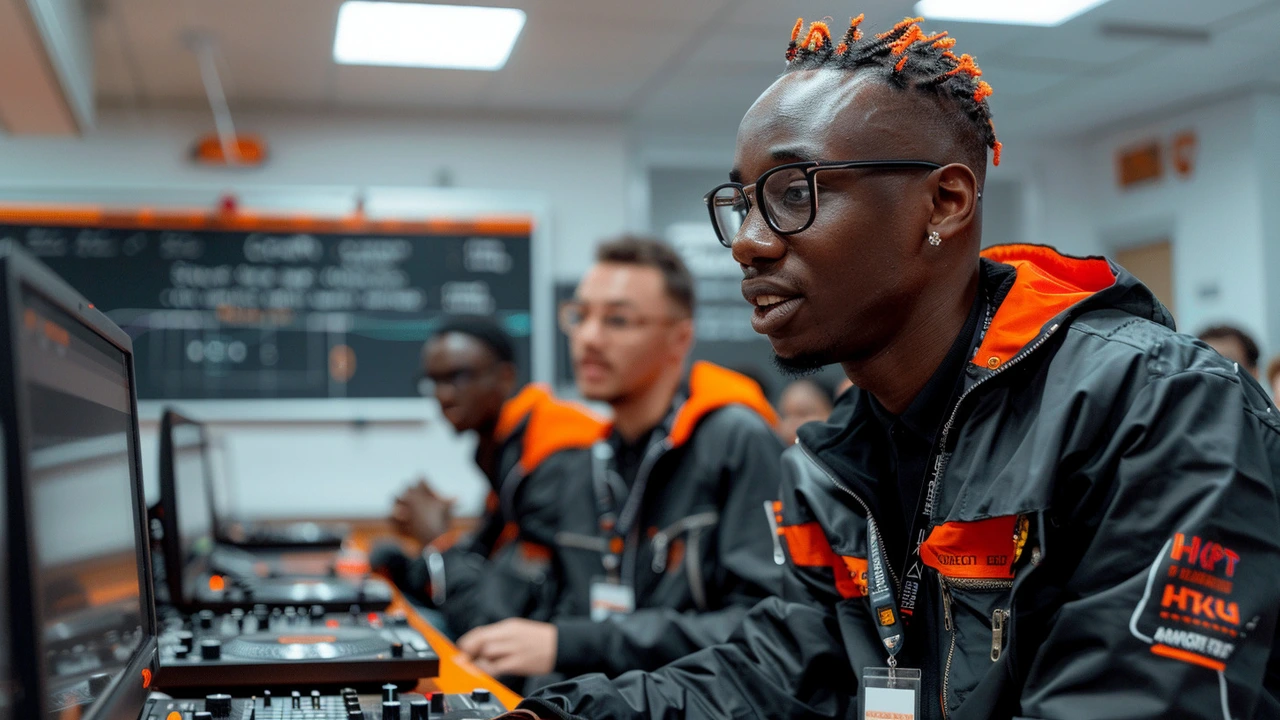The Unconventional Classroom: Hip Hop as a Teaching Tool
Imagine walking into a classroom and instead of the usual silence or the monotonous tones of a teacher's voice, you're greeted with the rhythm and rhymes of hip hop music. Sounds unconventional, right? But over the years, educators around the world are turning to hip hop not just as a form of entertainment but as a powerful educational tool. This journey begins with understanding that education isn't a one-size-fits-all scenario. Each student learns differently, and traditional teaching methods don't always reach everyone. Enter hip hop, a genre rooted in expression, storytelling, and cultural identity.
Hip hop music, with its rich narratives and rhythmic beats, provides a unique way to engage students. It's not just about listening to music; it's about dissecting the lyrics, understanding the socio-political context, and connecting personal experiences to broader themes. This method has shown incredible results in improving literacy, encouraging critical thinking, and even enhancing memory retention. Such outcomes stem from the inherently engaging nature of hip hop, which, when aligned with educational content, can make learning more accessible and enjoyable for students.
Case Studies: Hip Hop Making Waves in Education
Across the globe, educators have been experimenting with hip hop as a pedagogical tool, and the results are nothing short of inspiring. From New York City to Melbourne, teachers have integrated rap battles to discuss historical events, used songwriting to explore scientific concepts, and employed hip hop narratives to teach language arts. One standout example is a program where students were tasked with writing their own rap songs to summarize literature works. The engagement levels soared, and so did the comprehension and recall of key plot points and themes.
These case studies highlight not only the versatility of hip hop in teaching various subjects but also its power to create a more inclusive classroom environment. Students who might feel disconnected from traditional academic subjects find a sense of belonging and identity through hip hop. The genre's focus on storytelling and personal experience makes it an effective medium for exploring complex issues like race, inequality, and justice, thereby promoting empathy and understanding among students.
Integrating Hip Hop into Your Teaching Practice
For educators looking to bring the vibrancy of hip hop into their classrooms, the journey begins with immersion. Understanding the history and culture of hip hop is crucial, as is selecting appropriate content that resonates with educational objectives. Incorporating hip hop into lesson plans can be as simple as using songs to introduce topics or as complex as having students create their own hip hop projects to demonstrate their understanding of a subject.
When integrating hip hop, it's important to foster an environment of respect and open-mindedness. Encouraging students to express their thoughts and connect their personal experiences to the world around them can lead to profound learning experiences. Moreover, teachers should also consider partnering with local artists or using online resources to bring authenticity and depth to their lessons. The key is to remember that hip hop in education is not just about the music; it's about leveraging a cultural movement to make learning more relatable and impactful for students.
Challenging the Status Quo: The Future of Hip Hop in Education
Despite its successes, integrating hip hop into the curriculum is not without its challenges. Skepticism from traditionalists, concerns over content appropriateness, and the lack of resources can be significant obstacles. However, the growing body of research supporting its effectiveness as an educational tool cannot be ignored. As educators and policymakers begin to see the value in culturally responsive teaching methods, hip hop stands poised to take its rightful place in classrooms around the world.
Looking forward, the potential of hip hop in education extends beyond the classroom. It can serve as a catalyst for community engagement, a platform for student activism, and a means for fostering global connections among young people. By embracing hip hop, the educational community has the opportunity to not only enrich students' learning experiences but also to challenge the status quo, fostering a more inclusive and dynamic understanding of what it means to educate in the 21st century.

Write a comment